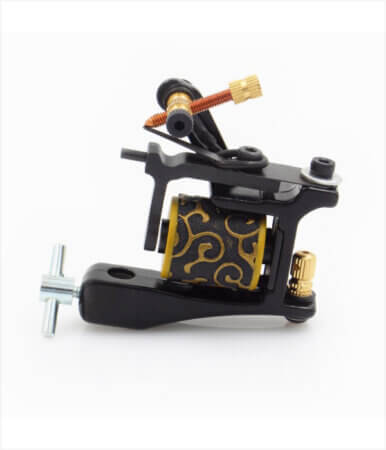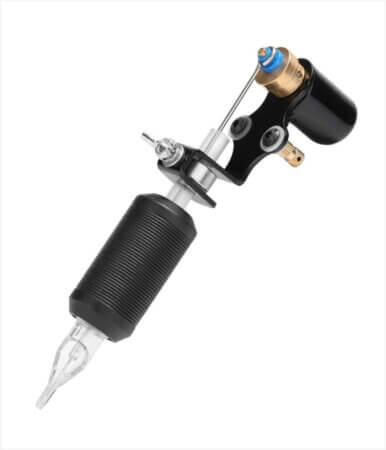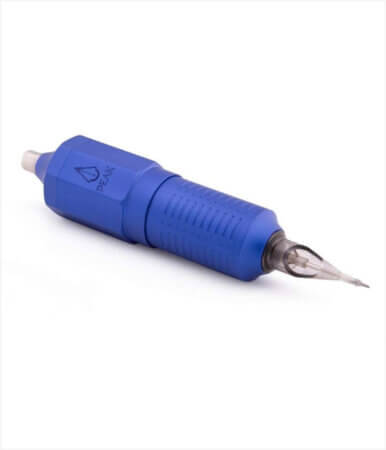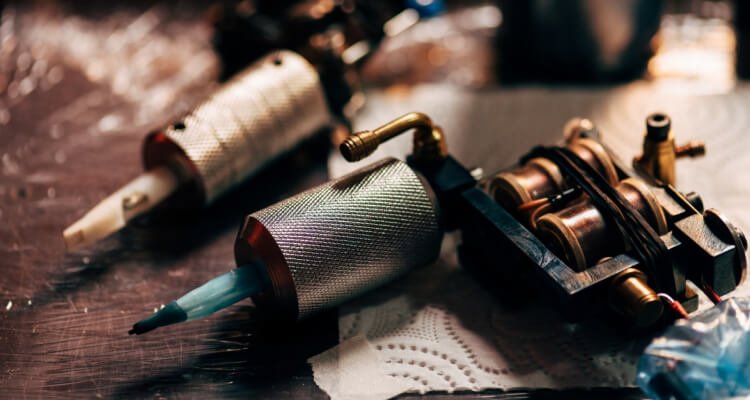If you’re serious about tattooing, the machine is more than just a tool. It will all get your paintbrush, scalpel and signatures caught in one. However, there are so many tattoo machines on the market today, how do you choose the right machine?
This guide breaks down the types of most common tattoo machines, their pros and cons, and styles or techniques that they best suit. Whether you’re just starting out or refined with gear setup, this guide will help you make the right choice and avoid expensive trial and error.
Various types of tattoo machines and their uses
1. Coil tattoo machine
The coil machine is a tattoo OG. Equipped with electromagnetic coils, these machines create distinctive lively sounds and powerful, punchy movements.

→ Optimal:
Traditional bold line scoller packing torrd school and new traditional style
→ Pros:
Durable time test separation between liner and shader manny customizable parts (springs, coils, frames)
→Cons:
Adjust vibrations of heavy nowledgemore than other types = higher fatigue over time
It’s perfect for: An artist who loves traditional techniques and wants fine control through machine adjustments.
2. Rotary Tattoo Machine
The rotary machine uses a small motor to move the needle in a circular motion, How the tattoo machine works. They are usually quieter and lighter than coil machines.


→ Optimal:
Smooth shadingThin line workBlack & Gray Realismbeginners (Easy handling)
→ Pros:
Low vibration and noise burgy type (many models do both lining and shading) Minimum maintenance
→Cons:
There are fewer “punches” than coil machines (some say they’re too soft) and higher voltages may be required for color saturation
It’s perfect for:Artists who want a reliable all-around work, or work in fine lines, dotwork or soft shading styles.
3. Pen Style Machine
These modern machines resemble thick pens or markers. The pen-style tattoo machine offers a compact, ergonomic design and direct needle movement.Permanent makeup) or something that focuses on accuracy.


→ Optimal:
Cosmetic Tattoo (PMU) Micro Liam Precision Line Work Long Session
→ Pros:
Ergonomically friendly changing the depth of the needle of the long tactile mirror with the cartridge system
→Cons:
More expensive than other MachinesFewer DIY customization options
It’s perfect for: You need an artist with detailed designs or maximum wrist comfort.
Read again: Tattoo Shop Equipment List
Quick comparison table
featurecoilrotarypen-stylenoise levellowvery lowvibration highlowminimalease of usemodereeasyvery easyversilitymediumhighhighcustomization highmediumlow
Select the right machine for your style
There is no “one size fit” tattoo. Many professionals use multiple machines depending on their job. A rotary for soft shading, a coil for punchy lines, a detailed filling and cosmetic pen.
→ But before investing, consider it:
Your Favorite Tattoo Stylish Experience Levery Hand Size and Grip Comfort Your Budget and Maintenance Routine
Where to buy a reliable tattoo machine
Not all machines are created equal, and not all suppliers can be trusted. If you’re looking for a reliable, high quality machine that works quickly out of the box, check it out Muroster tattoo supply. They have a wide selection of rotary, coil, pen style machines, needles, grips and power supplies for professional setups.
Whether you’re building your first kit or upgrading your workstation, Morostar Tattoo Supply is a solid go-to for quality and service.
Final Thoughts
Your tattoo machine should match your vision rather than suppressing your vision. Coil, Rotary or Pen – the right machine will be an extension of your hand.
So take your time to test, tweak and invest in gear that supports growth. In a tattoo, the tool not only leaves a mark, but also defines a signature.
follow me.
